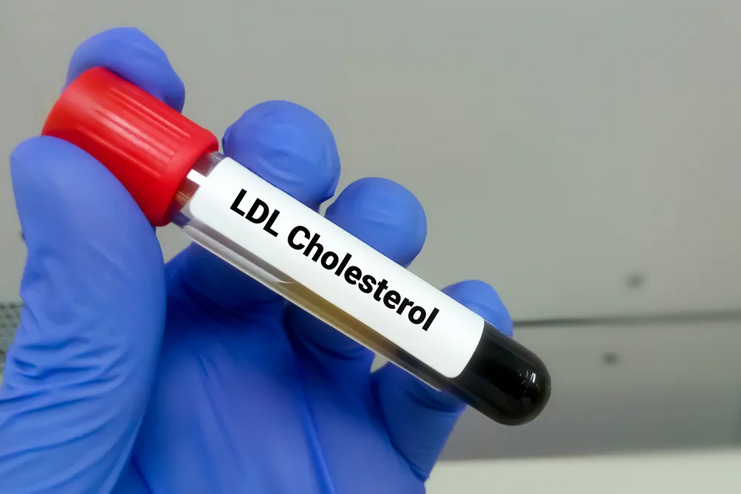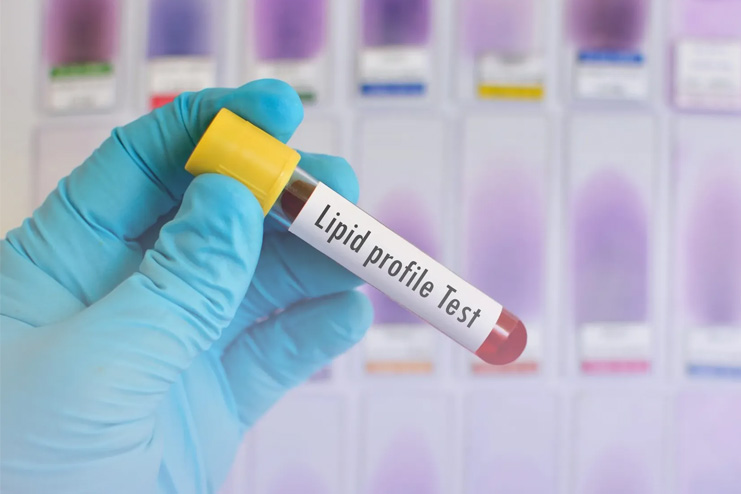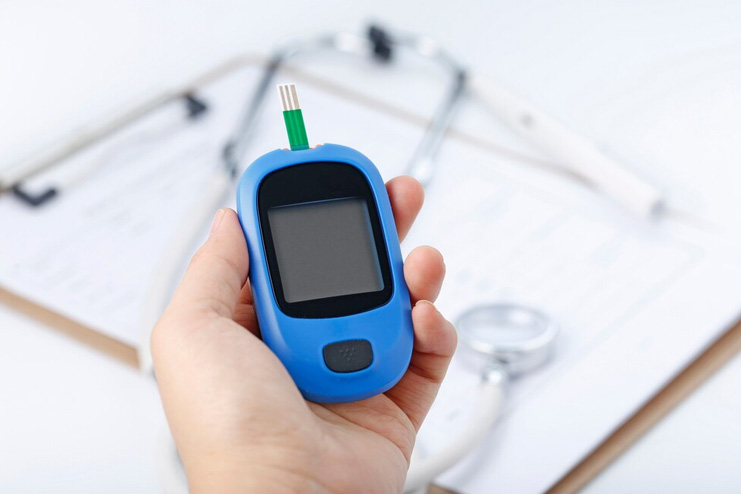Affiliate Disclaimer
Some links in this article are affiliate links. We may earn a small commission if you make a purchase through these links, at no extra cost to you. We only recommend products we find useful to our readersIn preventive medicine, understanding cholesterol and monitoring it is crucial for maintaining heart health. A fatty material found in the blood called cholesterol is an important element that when out of balance, can cause cardiovascular illnesses.
The importance of cholesterol testing as a preventative step in evaluating heart health and averting potential cardiovascular hazards is explored in this article. It enables readers to take proactive measures to maintain a heart-healthy lifestyle by guiding them through the cholesterol testing process and suggested time frames. A person’s cholesterol levels can provide important information about their cardiovascular health.
Understanding Cholesterol Levels
LDL (Bad) Cholesterol

It is common practice to refer to low-density lipoprotein (LDL) cholesterol as “bad” cholesterol. LDL cholesterol is essential in maintaining cardiovascular health. Although LDL transports cholesterol from the liver to the cells when it is present in excessive amounts, it can lead to plaque accumulation in the arteries. Because of this buildup, the arteries become more constricted, which decreases blood flow and raises the risk of developing heart disease. Maintaining optimal LDL cholesterol levels is essential for a healthy heart, and according to standards, individuals should keep these levels below a specific threshold.
Bringing down LDL cholesterol levels is necessary to lessen the likelihood of developing atherosclerosis and cardiovascular events. Modifications to one’s lifestyle, such as adopting a diet beneficial to the heart, engaging in regular physical activity, and even, in certain instances, taking medication, can be helpful in effectively managing low-density lipoprotein (LDL) levels. One of the most essential aspects of cardiovascular health is understanding LDL cholesterol and actively managing it. It highlights the importance of frequent cholesterol testing to monitor and treat potential hazards.
HDL (Good) Cholesterol

High-density lipoprotein cholesterol, also known as the “good” cholesterol, is a component that protects against cardiovascular disease. It is commonly referred to as “good” cholesterol. The HDL cholesterol transporter removes excess cholesterol from the bloodstream and delivers it to the liver, where it is eliminated. This process prevents the accumulation of cholesterol in the arteries, which reduces the likelihood of plaque formation and the development of heart disease. If you want to safeguard your cardiovascular system, increasing your HDL cholesterol levels is advantageous.
Changing one’s lifestyle, including engaging in regular physical activity, preserving a healthy weight, and avoiding tobacco products, can benefit high-density lipoprotein (HDL) levels. To achieve comprehensive cardiovascular health, it is vital to have a solid understanding of the dual roles that LDL and HDL cholesterol play. They can contribute substantially to lowering their risk of heart disease and maintaining optimal heart health throughout their lives by actively working to reduce their low-density lipoprotein (LDL) cholesterol levels and raise their levels of high-density lipoprotein (HDL) cholesterol.
Related Article: 9 Natural Ways To Lower Cholesterol For A Healthier Well Being
Cholesterol Testing Procedures
Lipid Profile Test

To determine the levels of cholesterol in the blood, the lipid profile test is the most critical component because it provides in-depth information regarding the various lipid components. The main components that this test measures are triglycerides, total cholesterol, low-density lipoprotein (LDL) cholesterol, and high-density lipoprotein (HDL) cholesterol. To guarantee proper results, it is common practice to urge participants to abstain from eating for at least nine to twelve hours before the examination. It eliminates any possibility of interference from recent meals.
A blood sample is usually drawn from an arm vein during the checkup. This blood sample is used in the lipid profile test, which doctors use to identify cardiovascular risk factors and develop preventative treatments. Lipid profile tests give doctors a complete picture of a person’s cholesterol, including LDL, HDL, and triglycerides.
Regular lipid profile testing is crucial for heart health prevention. It helps doctors detect dangers early and make lifestyle changes. The lipid profile helps adjust cardiovascular disease prevention measures like diet, exercise, and medication. Drawing a blood sample for the lipid profile test is crucial to proactive healthcare. It gives people and their doctors significant information about cholesterol levels and allows them to create individualized heart health and cardiovascular disease prevention plans. Thus, regular lipid profile testing is essential for heart health management.
Cholesterol Home Testing Kits

Individuals can now monitor their cholesterol levels without leaving the cozy confines of their homes, thanks to the proliferation of cholesterol home testing kits, which have arisen as practical alternatives to conventional laboratory-based testing. These kits commonly entail the collection of a blood sample using a fingerstick. You can obtain the results in a matter of minutes. It is essential to consider the accuracy and dependability of home testing kits, even though they offer a convenient and speedy alternative. According to studies, these kits can provide accurate findings, particularly regarding total cholesterol and HDL cholesterol levels. They are handy for people who favor frequent monitoring or have trouble accessing standard healthcare facilities.
Home lipid profile testing kits are convenient but may not be as transparent as laboratory-based tests. When picking a testing method, accuracy and completeness are crucial. Home testing kits may provide helpful information, but professional laboratory tests may provide more. Individuals should speak with healthcare professionals to understand their lipid profile. These professionals can help people choose the proper testing method for their needs, preferences, and health. Healthcare specialists provide accurate and dependable data, enabling more exact cardiovascular risk factor assessment.
In addition, healthcare specialists can discuss health goals, risk factors, and concerns with patients. This personalized guidance helps determine the best testing approach and creates a more effective prevention strategy.
Next Read: Symptoms Of High Cholesterol
When to Get Checked for Cholesterol
Age and Risk Factors

The scheduling of cholesterol tests is controlled by age and individual risk factors. Cholesterol testing is an essential component of preventive healthcare, and the timing of these tests is the most critical issue. When an individual reaches the age of 20, health experts generally suggest that they undergo their first cholesterol test. On the other hand, the testing frequency may change depending on factors such as lifestyle, medical history, and overall health. It is possible that a cholesterol screening once every four to six years is sufficient for individuals who do not appear to have any risk factors. On the other hand, people who have risk factors, such as being overweight, having diabetes, or having a history of heart disease in their family, could require more frequent testing.
Choosing to lead an unhealthy lifestyle, such as smoking or eating unhealthy food, has an impact on the frequency with which screenings are required. To determine an optimal cholesterol testing schedule, it is vital to have a thorough understanding of the connection between age and risk factors. This understanding enables prompt interventions to be taken to reduce the likelihood of cardiovascular hazards.
Family History of Heart Disease

People who come from families with a history of cardiovascular illness are at a greater risk of developing cardiovascular problems themselves. Early cholesterol screening is essential in situations like these because it permits the identification of potential risk factors and makes it possible to take preventative measures. According to the general recommendations, those with a family history of heart disease should begin screening for cholesterol levels earlier than the general recommendations, typically in their late teens or early twenties.
Through this proactive method, the early diagnosis of any abnormal lipid profiles is made possible, enabling individuals to adjust their lifestyle and potentially seek medical assistance if appropriate. When it comes to preventing heart disease and improving general cardiovascular well-being through early cholesterol testing, it can be beneficial to understand and acknowledge the impact of family history on heart health.
Interpreting Cholesterol Test Results
Understanding the Numbers

Understanding the findings of a cholesterol test is crucial for assessing cardiovascular health and proactively reducing risks. Triglycerides, total cholesterol, low-density lipoprotein (LDL) cholesterol, and high-density lipoprotein (HDL) cholesterol are frequently measured and reported in cholesterol test reports. Generally speaking, total cholesterol should be less than 200 mg/dL, LDL cholesterol should be less than 100 mg/dL, and HDL cholesterol should be more than 40 mg/dL for males and 50 mg/dL for women. Recommendations for cholesterol levels vary.
Results that are abnormal might point to possible cardiovascular concerns. An increased risk of heart disease can result from plaque accumulation in the arteries caused by elevated LDL cholesterol levels. There may also be a link between low HDL cholesterol and an increased risk of heart disease. Over 150 mg/dL of triglycerides is likewise regarded as excessive and may be a sign of elevated cardiovascular risk.
It is essential to understand that individuals should interpret these ideals individually, and they are only broad recommendations. Age, general health, and medical history are among the variables that matter. Speaking with medical professionals for a comprehensive interpretation of cholesterol test results is crucial. In addition to discussing potential risk factors and offering personalized insights, they might suggest appropriate medication or lifestyle changes. Frequent follow-up evaluations guarantee that people remain knowledgeable about their cardiovascular health and can make wise decisions to preserve their best possible health.
Conclusion
Proactively maintaining heart health requires knowing and controlling one’s cholesterol levels. We have discussed the importance of cholesterol testing protocols, focusing on the ease of use of home testing kits and the lipid profile test. Knowing when to get tested, considering aspects like age, family history, and risk factors is critical. Understanding acceptable levels and the ramifications of aberrant findings is essential when interpreting the results of a cholesterol test.
Make routine cholesterol testing a priority in preventative healthcare to strengthen heart health. When combined with expert advice, routine screenings make customized care plans possible. By being informed and adopting preventative action, people can be critical players in protecting their cardiovascular health.
Other Related Articles:
5 Effects Of High Cholesterol You Need To Know Of
References
- https://my.clevelandclinic.org/health/articles/24391-ldl-cholesterol
- https://medlineplus.gov/ldlthebadcholesterol.html
- https://www.nhlbi.nih.gov/health/blood-cholesterol
- https://www.mayoclinic.org/diseases-conditions/high-blood-cholesterol/in-depth/hdl-cholesterol/art-20046388
- https://www.webmd.com/cholesterol-management/hdl-cholesterol-the-good-cholesterol
- https://www.ncbi.nlm.nih.gov/pmc/articles/PMC3504986/
- https://my.clevelandclinic.org/health/diagnostics/17176-lipid-panel
- https://www.hopkinsmedicine.org/health/treatment-tests-and-therapies/lipid-panel
- https://www.healthline.com/health/cholesterol-test
- https://www.webmd.com/cholesterol-management/cholesterol-home-test-kits
- https://www.mayoclinic.org/diseases-conditions/high-blood-cholesterol/expert-answers/cholesterol-test-kits/faq-20057822
- https://www.verywellhealth.com/home-cholesterol-tests-4010594
- https://www.nhlbi.nih.gov/health/blood-cholesterol/diagnosis
- https://www.mayoclinic.org/tests-procedures/cholesterol-test/about/pac-20384601
- https://www.cdc.gov/cholesterol/cholesterol_screening.htm
- https://medlineplus.gov/ency/article/007465.htm
- https://www.heartfoundation.org.au/bundles/your-heart/family-history-and-heart-disease
- https://www.cdc.gov/genomics/disease/fh/history_heart_disease.htm
- https://www.ncbi.nlm.nih.gov/pmc/articles/PMC7256470/
- https://my.clevelandclinic.org/health/articles/11920-cholesterol-numbers-what-do-they-mean
- https://www.heart.org/en/health-topics/cholesterol/about-cholesterol/what-your-cholesterol-levels-mean
- https://www.webmd.com/cholesterol-management/understanding-numbers
In this Article


















